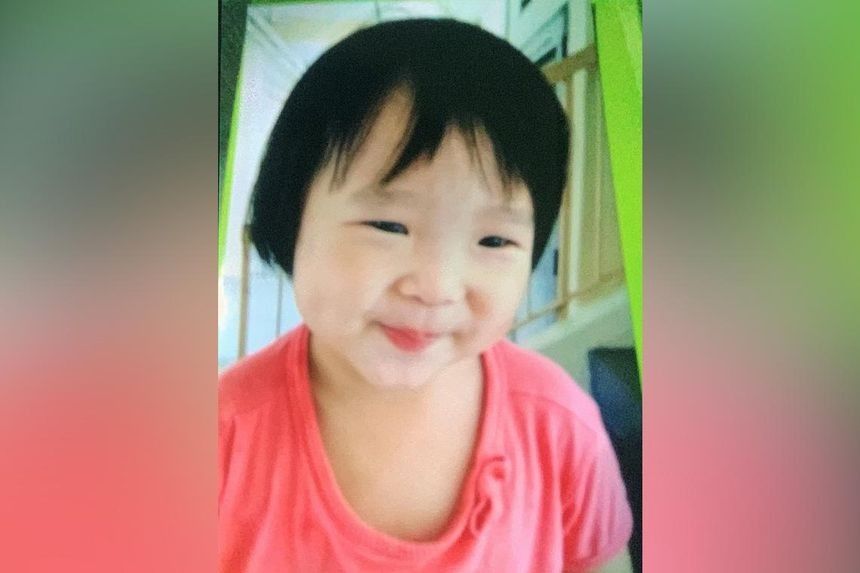
No stranger to controversy, the Chinese University of Hong Kong (CUHK) vice-chancellor Rocky Tuan Sung-chi is once again the target of criticism as lawmakers move to overhaul the institution’s governing council.
The 72-year-old professor’s repeated refusal to appear before a Legislative Council committee this month and face questioning over issues of governance have sparked calls for him to go. He said he was ill.
Former city leader Leung Chun-ying, a long-time critic who has never stopped slamming the way Tuan handled student protests in 2019, was so irked by his refusal to meet lawmakers that he said: “He should reconsider his position at the university.”
Do you have questions about the biggest topics and trends from around the world? Get the answers with SCMP Knowledge, our new platform of curated content with explainers, FAQs, analyses and infographics brought to you by our award-winning team.
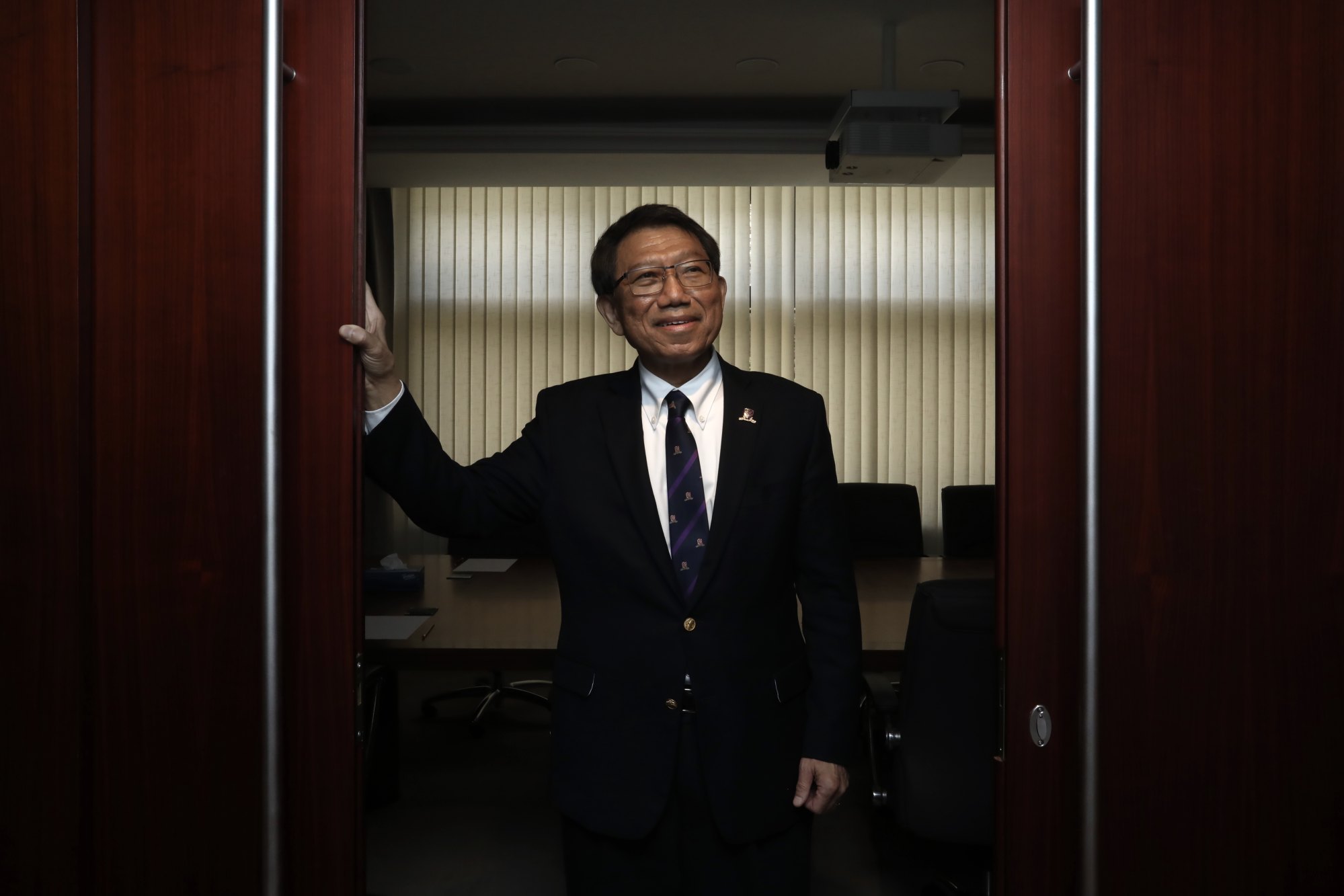
Events unfolded swiftly last year, after the university council decided that April to reappoint Tuan for a new three-year term ending in 2026. That triggered immediate criticism and a surprise move to reform the council.
Lawmakers Tommy Cheung Yu-yan, Edward Lau Kwok-fan and Bill Tang Ka-piu, all council members themselves, initiated a private members’ bill to slash its membership from 55 to 34 while increasing the number of outside representatives, including government appointees.
They wanted the ratio of external members to internal ones raised to 2:1 from the current roughly even mix, and proposed that no fewer than three quarters of council members would be needed to approve the appointment of the vice-chancellor, instead of the current simple majority.
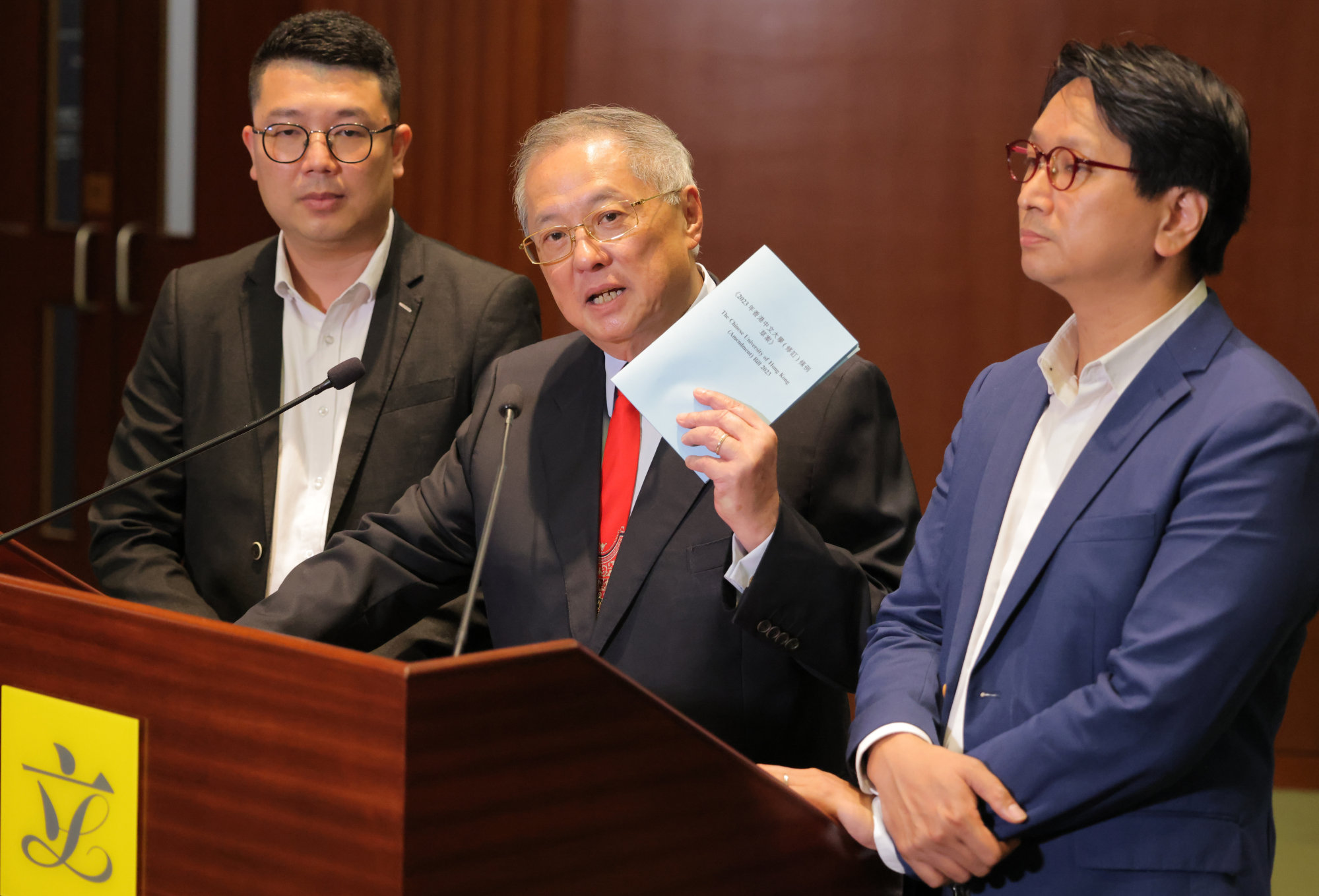
The CUHK council responded last December by setting up a task force, which decided in April that reform plans left dormant since 2016 were still fit to go. It recommended trimming the council size, including reviewing whether the current number of three lawmakers appointed to the advisory body could be reduced.
Despite the council’s endorsement of the 2016 proposal, Cheung, Lau and Tang pushed ahead with their own proposal to restructure the council through a private member’s bill, requesting the university foot the bill of the cost incurred.
Opponents of the bill questioned the manner in which the university’s internal affairs had been taken to the legislature, and warned that it could erode academic freedom.
But the three lawmakers pointed out that the proposals largely reflected the university’s own reform plans from 2016.
Chinese University of Hong Kong’s Rocky Tuan ‘evading’ grilling by lawmakers
Despite the dismay expressed by some council members, the Legco bills committee proceeded to scrutinise the proposed legislation. Each time Tuan failed to show up, he was criticised anew, with suggestions that he should go.
Kelvin Yeung Yu-ming, chairman of the university’s convocation – a statutory body made up of all its graduates – and fellow university council members Enders Lam Wai-hung and Heung Shu-fai initiated an online petition on July 22 to lobby against the bill.
CUHK alumnus Heung said it seemed that the lawmakers were more focused on attacking Tuan.
“There was no debate, they were unanimously condemning one person,” he said.
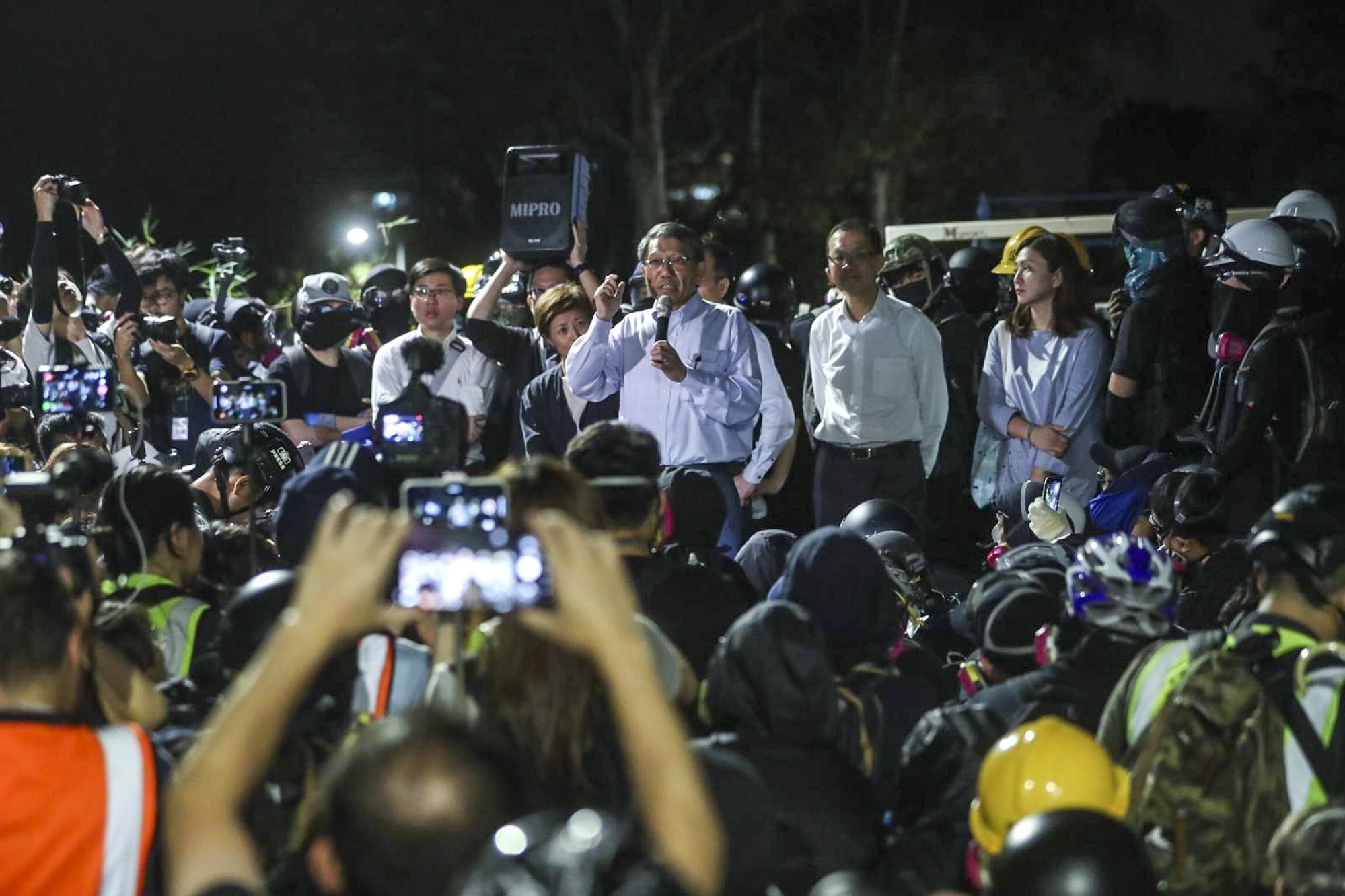
In about nine days, roughly 1,600 people signed the petition appealing to lawmakers to reject the bill. They included prominent figures such as Louis Ng Chi-wa, director of the Hong Kong Palace Museum and government pandemic adviser David Hui Shu-cheong.
Although the CUHK council endorsed its task force’s reform recommendations this month, they cannot take effect without Legco approval.
What appears inevitable is that the three lawmakers’ bill, which is expected to go before Legco in November, will be passed.
So was the entire council reform saga really over the man who has been CUHK vice-chancellor since January, 2018?
Hong Kong lawmakers may invoke special powers to investigate university council
One controversy too many?
Hongkonger Tuan, an internationally known biomedical scientist, came under fire during the social unrest in 2019, when he was accused of being too sympathetic to student protesters.
He met groups of them on campus, and at one point issued an open letter in which he listed alleged police abuses his students had described and called on the government to hold an independent probe into the mistreatment claims.
That was condemned by police groups who accused CUHK of being “a hub of anti-China and pro-Hong Kong independence forces”.
The same year, Britain’s Times Higher Education supplement named him one of the world’s most influential academics and praised the way he “stood up for his campus and students”.
His reappointment for a further three years in April last year was met with an outcry from his critics. The university explained that it would take time to initiate a job search and the recruitment process could take at least 12 to 18 months.
Then, last October, there was a new controversy when the university unveiled a simplified split-colour Chinese phoenix emblem as part of a “rebranding exercise” to mark its 60th anniversary this year.
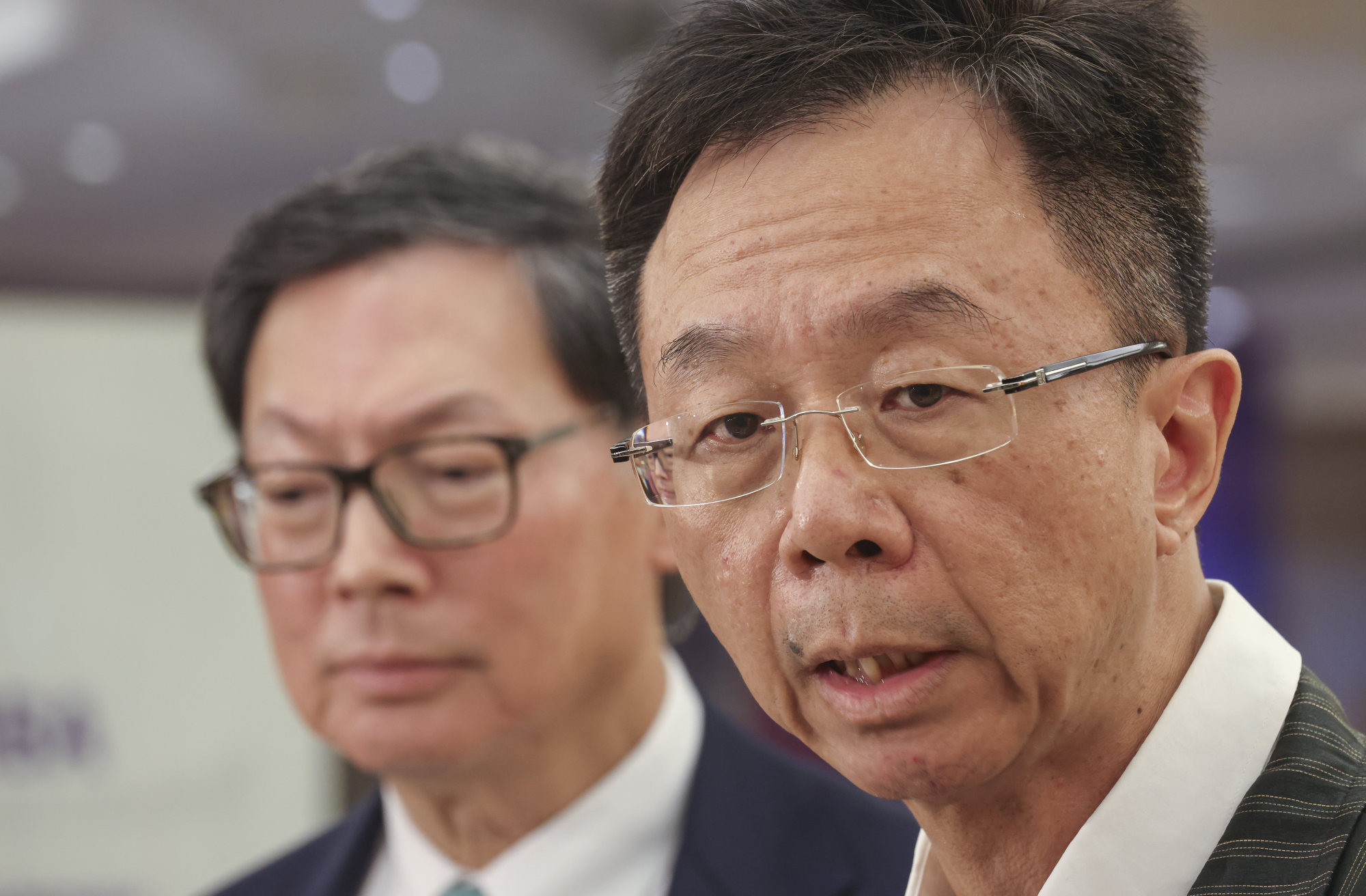
The negative reaction from the public and lawmakers was so strong that the university dropped the new design within just a week or so.
Some lawmakers were quick to say the incident reflected poor governance at the university.
During a recent meeting of the Legco bills committee, Professor John Chai Yat-chiu, who took over as CUHK council chairman in May last year, revealed that the university management did not ask the council to approve the change of emblem.
He also said he had not been able to obtain information about the terms of Tuan’s new contract. The vice-chancellor’s appointment had been extended by the council under Chai’s predecessor, Norman Leung Nai-pang.
Former city leader Leung Chun-ying said: “There is clearly a consistent pattern of insubordination on the part of Professor Tuan and the secretary general of the university who doubles as secretary to the council.”
CUHK did not respond to a Post request to interview Tuan.
University council backs reform but no full support for Hong Kong lawmakers’ plan
CUHK last to trim bloated council
Founded in 1963 in Sha Tin, CUHK is the only university in the city with a collegiate system and has nine colleges.
Currently, representatives of its first four colleges have 16 seats on the council, which partly explains its large membership.
The university itself has acknowledged over the years that its council was far too big and ought to be trimmed, but it did not act.
Calls for reform of the governance and management structures of universities go back to a 2002 government report which suggested that smaller governing bodies would be better. It cited a British report that recommended an optimal size of 25 council members.
Other government funded universities in Hong Kong went ahead with reforms.
According to documents prepared by Tang, one of the lawmakers behind the CUHK reform bill, City University now has the smallest council with 23 members, while the University of Hong Kong has 24. Baptist University and Lingnan University have 35 and 34, respectively.
The ratio of external to internal members was roughly 2:1, except at Baptist University with a mix of about 1:1, like CUHK.
In 2009, the CUHK council proposed downsizing to 25 members, with 17 external and eight internal members. It also wanted the number of Legco representatives cut from three to one.
University of Hong Kong clamps down on behaviour that brings it into ‘disrepute’
The proposals came to nought following criticism over the lack of consultation and worries that having so many external members could hurt academic freedom.
In 2016, the university did another review and recommended having a council of 29 members with external members in the majority, but again, nothing was done.
The task force set up last year conceded that the council was “clearly far too big” and recommended having between 25 and 34 members, with an internal-external ratio of between 1:1.64 and 1: 2.13.
It also said the threshold for approving the appointment of the vice-chancellor should be between two-thirds and three-quarters of council members.
The council reaffirmed the task force report even as the bill was being scrutinised by the Legco committee this month.
In a reply to the Post, CUHK said it supported the task force recommendations and “remains committed to ensuring the university has a governance model which is fit for purpose and aligned with best practice”.
877 back alternative plan to reform Chinese University of Hong Kong’s council
‘We aren’t targeting one person’
Despite the recent storm over vice-chancellor Tuan’s absence from the Legco bills committee’s meetings, some lawmakers brushed off the suggestion of a political campaign against him.
Committee chair Priscilla Leung Mei-fun said: “We are not targeting one person. Some people may really want him to resign, but whether he should stay or not should be decided by the new [reformed] council.”
She said the proposals in the bill were moderate and intended to improve administration of the university.
Supporters of the bill noted that the university received recurrent public funding of about HK$13.8 billion (US$1.76 billion) between the academic years 2022-23 and 2024-25, and said it ought to be more accountable.
Tang said the trio had two main reasons for pressing ahead – other universities had already made changes, and CUHK’s recent incidents showed the need for reform.
“We are part of the university council, we place great importance on the image of the university council, which includes members of the university management,” he said. “If you pay attention to the bills committee, we three lawmakers did not make any comments directed at any particular school administration official.”
He was not worried that the saga would affect the university’s reputation.
Chinese University council member urges Hong Kong lawmakers to delay overhaul bill
Veteran China watcher Lau Siu-kai, a CUHK emeritus professor and consultant at Beijing’s semi-official think-tank the Chinese Association of Hong Kong and Macau Studies, said it was unfortunate that many people had linked Tuan’s handling of student protesters in 2019 with the university’s governance.
But clearly, Tuan’s actions during the unrest had not been forgotten.
“There are many people who are not happy with the way Professor Tuan handled the protests on campus,” Lau said.
“Polytechnic University was also occupied by radical rioters in 2019. But its president, Professor Teng Jinguang, was not seen as sympathetic to the protesters, unlike Professor Tuan.”
CUHK alumnus and veteran council member Heung, who was among those behind the petition against the bill, still bristled at the way lawmakers talked about governance issues at the university.
“From 2002 to 2022, before Professor John Chai Yat-chiu became the chairman of the CUHK council, all the council chairmen and council members had a good relationship with the university, everyone got along with each other,” he said.
He noted many strides during that period, including the establishment of the university’s teaching hospital and its campus in mainland China.
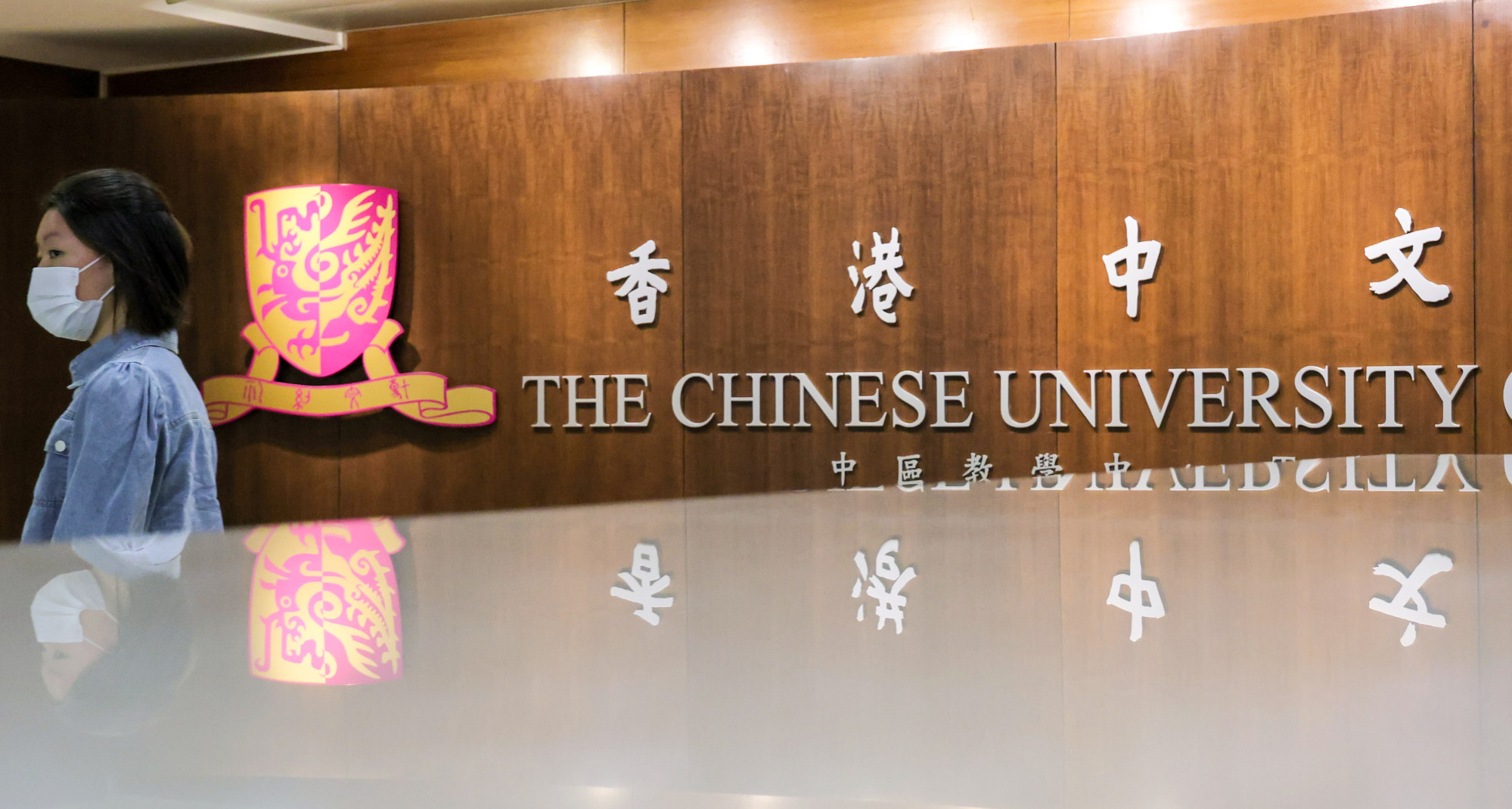
“If you say we had poor governance, where the council and university were wrangling among ourselves, how could we have done so many things?” he asked.
Fellow council member Enders Lam maintained they were not against reforms, but unhappy that the three lawmakers behind the bill had bypassed the council, and lawmakers had ignored the consensus reached in the council’s 2016 review report.
While the passage of the bill appeared a foregone conclusion, Lam said: “I would not say we have been defeated because we had helped the public know the truth that the reform of the council is shoved down our throats through the power of three lawmakers.”
As for CUHK’s vice-chancellor, who figured so prominently throughout the saga, political scientist Chan Wai-keung of the Hong Kong Community College of Polytechnic University said Tuan looked bad by apparently refusing to appear before the Legco bills committee and that gave angry lawmakers an excuse to target him.
“I am not suggesting that his days as university head are numbered, but few will expect his days ahead to be plain-sailing,” he said. “He will probably be under more pressure.”
Additional reporting by Cannix Yau
More from South China Morning Post:
- What is the bill calling for changes to Chinese University’s governing council and why is it so controversial?
- Legco blocks Hong Kong public hearing to discuss controversial proposal to change make-up of Chinese University’s governing council
For the latest news from the South China Morning Post download our mobile app. Copyright 2023.









